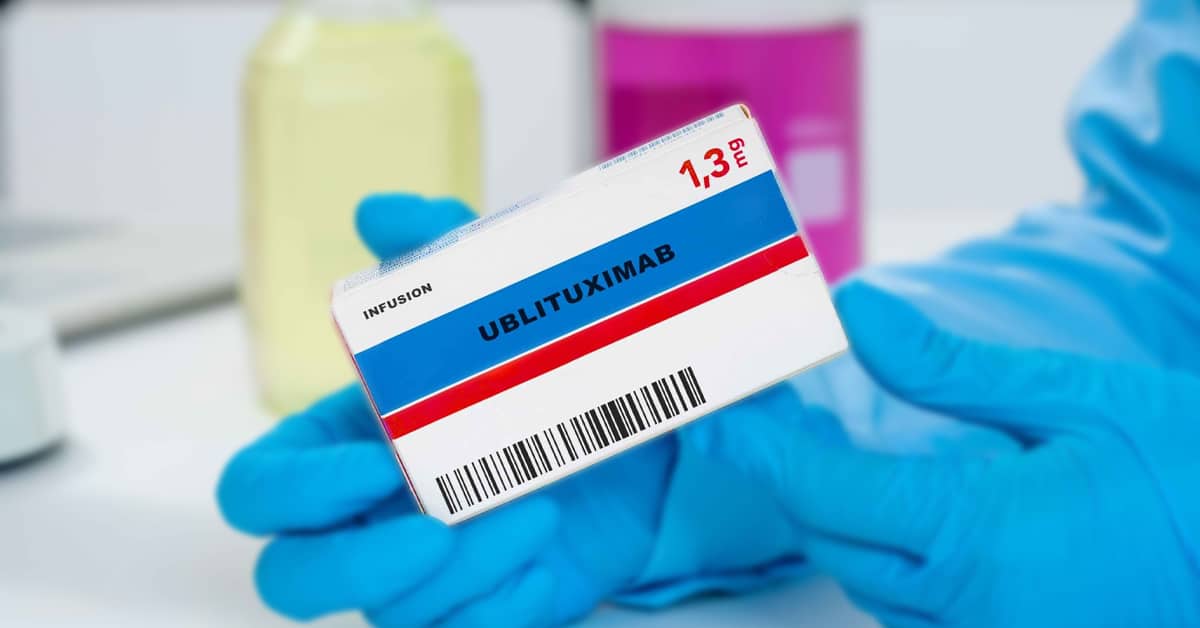- In May 2025, the Pharmaceutical Benefits Advisory Committee (PBAC) recommended adding ublituximab (Briumvi®) to the Pharmaceutical Benefits Scheme (PBS) for treating adults with relapsing remitting MS.
- Ublituximab takes less time to administer and needs less frequent dosing than some other similar treatments, while being just as effective.
- The process now moves to the Federal Government for final approval for inclusion on the PBS. This would make ublituximab more affordable and accessible for people with relapsing remitting MS.
The Pharmaceutical Benefits Advisory Committee (PBAC) recommended a new treatment for people with relapsing remitting MS be listed on the Pharmaceutical Benefits Scheme (PBS), following its May 2025 meeting.
The treatment, ublituximab (Briumvi®), was approved by the Therapeutic Goods Administration (TGA) in June 2025 for treating adults with relapsing remitting MS. While the TGA approves the use of medications in Australia, it is up to the PBAC to recommend whether it should be included on the PBS. Inclusion on the PBS means the medication is subsidised, making it more affordable.
The PBAC is required to consider many factors when making recommendations, including the effectiveness and cost of a treatment relative to other available medicines, and the cost to the government of a new listing.
MS Australia strongly advocated for this recommendation by providing a submission to the PBAC in support of ublituximab. You can see the submission here.
How does ublituximab work and what do clinical trials show?
Ublituximab is a monoclonal antibody treatment that is delivered intravenously. It targets B cells (a type of immune cell) that produce a protein called CD20 and reduces their number. This, in turn, reduces the number of relapses, disability progression and the number of new lesions.
Recent phase 3 clinical trials showed ublituximab is an effective treatment, reducing the frequency of relapses and new MRI lesions in people with MS compared to the oral treatment teriflunomide. While there are other intravenous monoclonal antibody treatments listed on the PBS (ofatumumab, ocrelizumab, alemtuzumab and natalizumab), ublituximab’s dosing schedule is less frequent than that of ofatumumab and natalizumab, and the infusion time is shorter compared to ocrelizumab and alemtuzumab. Ublituximab has been specifically engineered to target CD20-producing B cells with increased effectiveness. This potentially gives stronger and longer-lasting therapeutic effects than other anti-CD20 monoclonal antibody treatments (ofatumumab and ocrelizumab).
Ublituximab is given twice a year after the initial dose and has an infusion time of one hour. Recent comparisons suggest it is as effective as the other intravenous monoclonal antibody treatments. This means that ublituximab may be a more convenient treatment choice for some people with relapsing remitting MS.
What does this mean?
This positive decision by the PBAC is the first step in the process for approval for including a treatment on the PBS, which will now move to the Federal Government for final approval. If approved, ublituximab will be subsidised through the PBS and be more affordable for people with relapsing remitting MS.
MS Australia continues to advocate for systemic changes that will improve the lives of people with MS and MS-related disorders. It remains committed to ensuring that all Australians living with MS and MS-related disorders can benefit from a healthcare system that is inclusive, accessible, and equitable.



